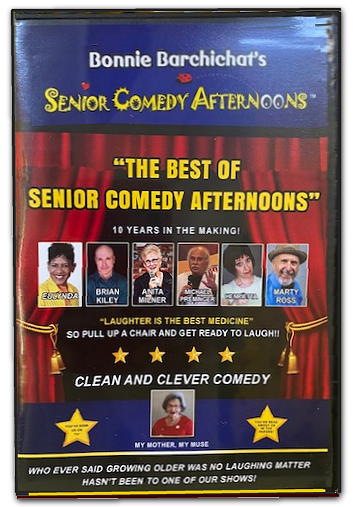Behavioral Health Programming Guide for Skilled Nursing Facilities
$14.95The regulations are facility wide but the Activity Department is right in the middle of things.
This Programming Guide, written by M. Celeste Chase, AC-BC, ACC, CDP, provides a Step by Step approach to help the Activity Professional and Staff to understand the challenges Behavioral Health presents and how to respond with activities that help redirect and reduce disruptive or unwanted behaviors.
Celeste has deconstructed the most common Behavioral Health issues into a language easy to understand, triggers, strategies, engagement, adaptations, interventions, samples and goals. This Programming Guide will help you and your facility become Behavioral Health Compliant with minimal stress.
Behavioral Health - Behavioral health encompasses a resident’s whole emotional and mental well-being, which include, but is not limited to the prevention and treatment of mental and substance use disorders.
Not surprisingly, federal agencies such as the Centers for Medicare and Medicaid Services (CMS) support behavioral health and psychiatric well-being for individuals in senior care facilities. Specifically, the concern centers on the over-reliance of antipsychotic medication use for residents with disruptive behaviors. Unwanted behaviors must first be treated through behavioral interventions before psychoactive medications can be administered.
(Digital Download) - Download link will be emailed to you and stored in your Purchases Control Panel immediately upon payment.
~~~~~~~~~~~~~~~~ sample ~~~~~~~~~~~~~~~~
:::::: Behavior Management mandates requires:
THAT STAFF MUST:
§ Possess appropriate competencies and skill sets to care for residents diagnosed with mental and psychosocial disorders as well as those with a history of trauma and/or post-traumatic stress disorder (PTSD).
§ Provide treatment and services to correct the assessed problem or to attain the highest practicable mental and psychosocial well being for residents that display/diagnosed with;
mental disorder psychosocial adjustment difficulty history of trauma or post-traumatic stress disorder (PTSD) § Monitor for patterns of behavior difficulties not previously diagnosed, assessed or revealed that decreases social interaction and/or increases withdrawn, angry, or depressive behaviors- unless the clinical condition demonstrates that development of such a pattern was unavoidable.
§ Provide a resident who displays or is diagnosed with dementia with appropriate treatment and services to attain or maintain his or her highest practicable physical, mental, and psychosocial well-being.
§ Provide medically related social services to attain or maintain his or her highest practicable physical, mental, and psychosocial well-being.
NOTE: When unwanted behavior is not pervasive and moves from isolated incidents to frequent occurrences, the repetitive behavior may have developed into an ingrained “coping pattern”. Interventions will need to be consistently applied by developing a “behavior management plan” that is supported by ALL staff members to achieve appropriate behavior modification and significantly reduce the unwanted behavior. [It can take up to two weeks or more when the behavior is worse before it improves. The resident may struggle to hold onto what they know before he/she learns to adapt to new behavior].
About Behavioral Health Programming Guide for Skilled Nursing Facilities
(Digital Download) The New Behavioral Health Regulations F740-F744, F758 & F659 have become part of the 2018-2019 CMS.gov Survey Process for Skilled Nursing Facilities.
The regulations are facility wide but the Activity Department is right in the middle of things.
This Programming Guide, written by M. Celeste Chase, AC-BC, ACC, CDP, provides a Step by Step approach to help the Activity Professional and Staff to understand the challenges Behavioral Health presents and how to respond with activities that help redirect and reduce disruptive or unwanted behaviors.
Celeste has deconstructed the most common Behavioral Health issues into a language easy to understand, triggers, strategies, engagement, adaptations, interventions, samples and goals. This Programming Guide will help you and your facility become Behavioral Health Compliant with minimal stress.
Behavioral Health - Behavioral health encompasses a resident’s whole emotional and mental well-being, which include, but is not limited to the prevention and treatment of mental and substance use disorders.
Not surprisingly, federal agencies such as the Centers for Medicare and Medicaid Services (CMS) support behavioral health and psychiatric well-being for individuals in senior care facilities. Specifically, the concern centers on the over-reliance of antipsychotic medication use for residents with disruptive behaviors. Unwanted behaviors must first be treated through behavioral interventions before psychoactive medications can be administered.
(Digital Download) - Download link will be emailed to you and stored in your Purchases Control Panel immediately upon payment.
~~~~~~~~~~~~~~~~ sample ~~~~~~~~~~~~~~~~
:::::: Behavior Management mandates requires:
THAT STAFF MUST:
§ Possess appropriate competencies and skill sets to care for residents diagnosed with mental and psychosocial disorders as well as those with a history of trauma and/or post-traumatic stress disorder (PTSD).
§ Provide treatment and services to correct the assessed problem or to attain the highest practicable mental and psychosocial well being for residents that display/diagnosed with;
- mental disorder
- psychosocial adjustment difficulty
- history of trauma or post-traumatic
- stress disorder (PTSD)
§ Monitor for patterns of behavior difficulties not previously diagnosed, assessed or revealed that decreases social interaction and/or increases withdrawn, angry, or depressive behaviors- unless the clinical condition demonstrates that development of such a pattern was unavoidable.
§ Provide a resident who displays or is diagnosed with dementia with appropriate treatment and services to attain or maintain his or her highest practicable physical, mental, and psychosocial well-being.
§ Provide medically related social services to attain or maintain his or her highest practicable physical, mental, and psychosocial well-being.
NOTE: When unwanted behavior is not pervasive and moves from isolated incidents to frequent occurrences, the repetitive behavior may have developed into an ingrained “coping pattern”. Interventions will need to be consistently applied by developing a “behavior management plan” that is supported by ALL staff members to achieve appropriate behavior modification and significantly reduce the unwanted behavior. [It can take up to two weeks or more when the behavior is worse before it improves. The resident may struggle to hold onto what they know before he/she learns to adapt to new behavior].










